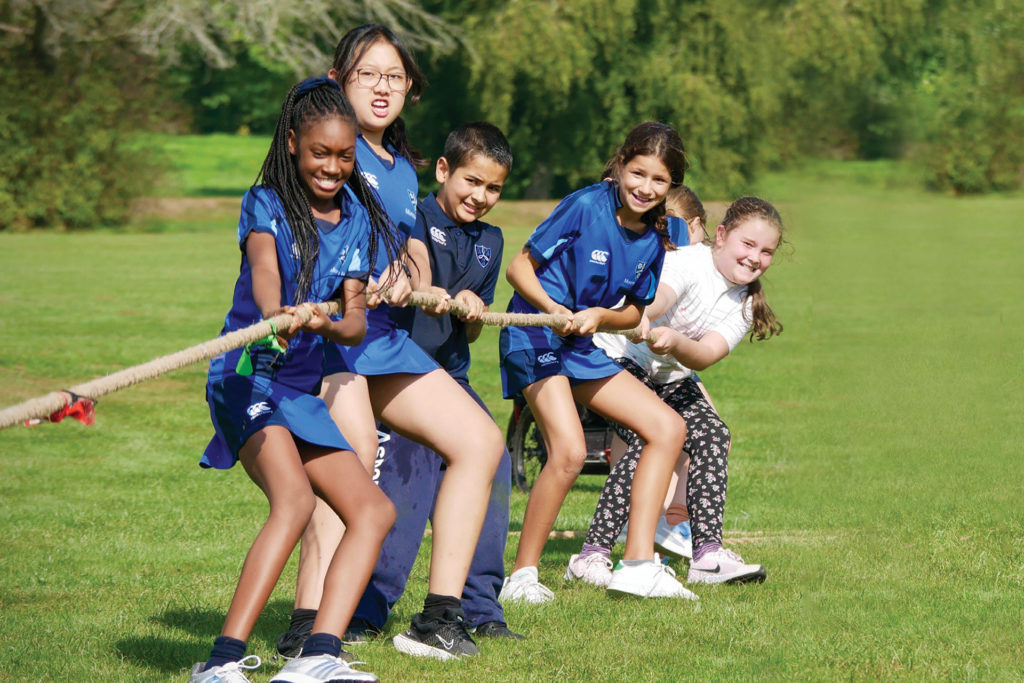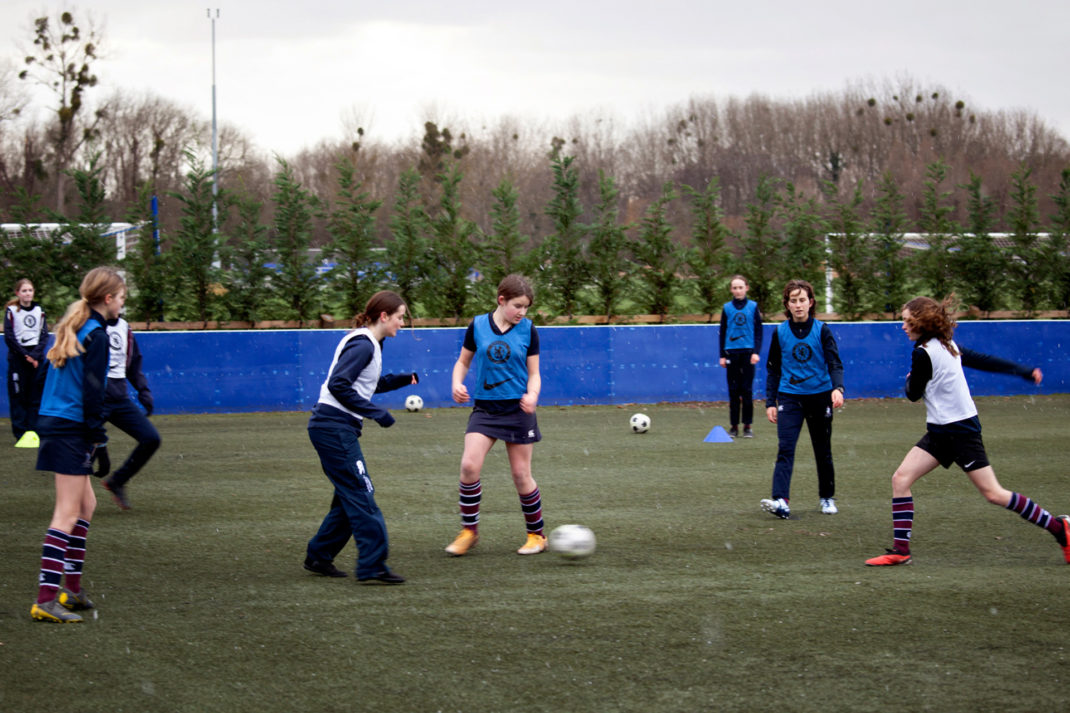What Happens At Saturday School?
By
3 months ago
While some schools operate on a weekends-off basis, plenty of preps are keeping the tradition of Saturday school alive, finds Eleanor Doughty
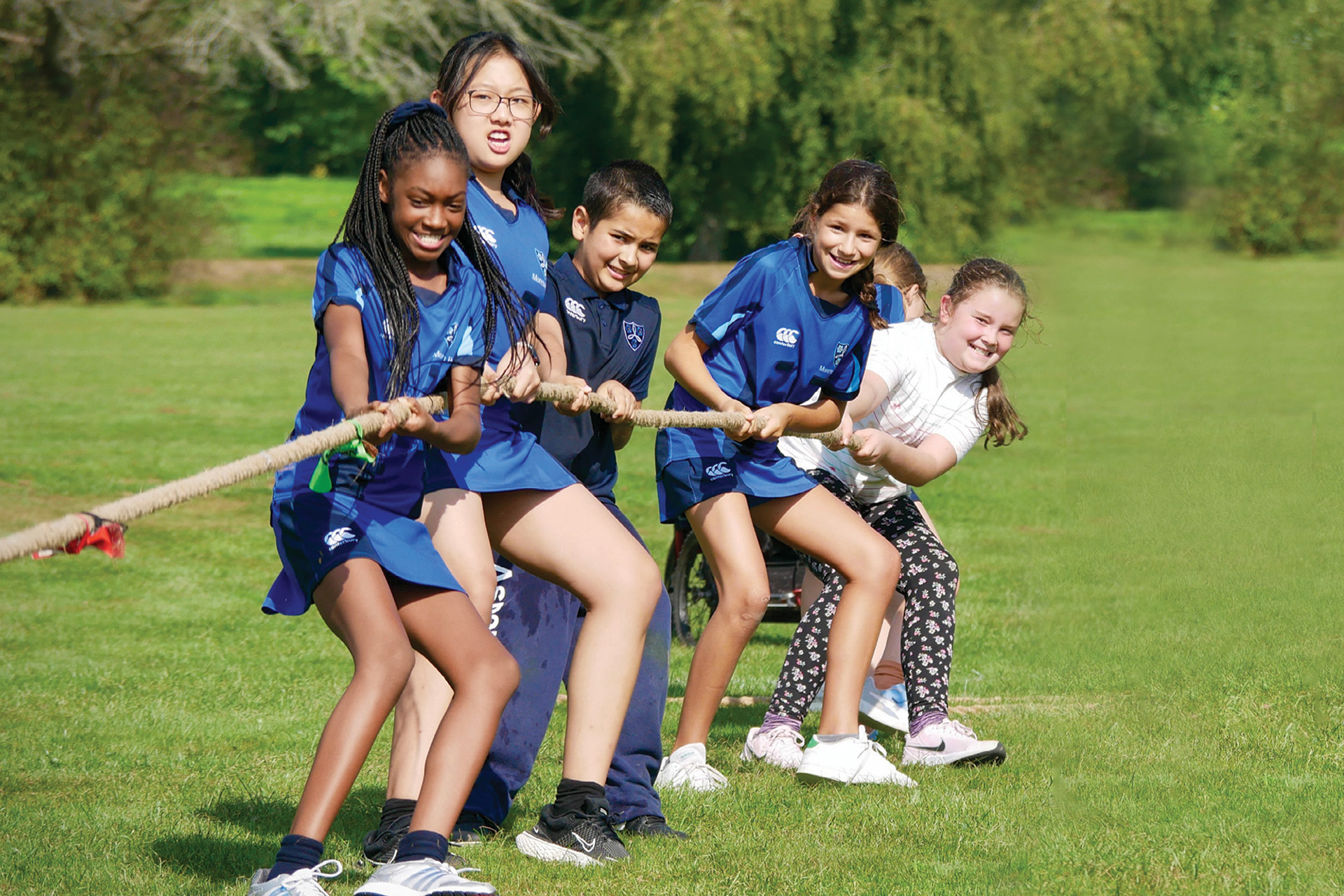
It’s two o’clock in the afternoon, the winter sun is shining, and excitement is in the air. With a heave-ho, a rugby ball is slammed down on the field, and up goes the applause. Soon enough, the captains will shake hands, and a legendary match tea will commence, before everyone is bundled off to warm up in front of the fire.
It’s Saturday at your local prep school, and fixtures afternoon, part of a longstanding tradition that sees children spend six days a week at school, be they day or boarding pupils.
For parents new to the independent school sector, Saturday school might seem a little strange. Aren’t weekends supposed to be for family time – for dog walks, Lego building, and lunch with the grandparents? Though in recent years some schools have changed their Saturday school provision to reflect modern family life, for many it continues on more positively than ever.
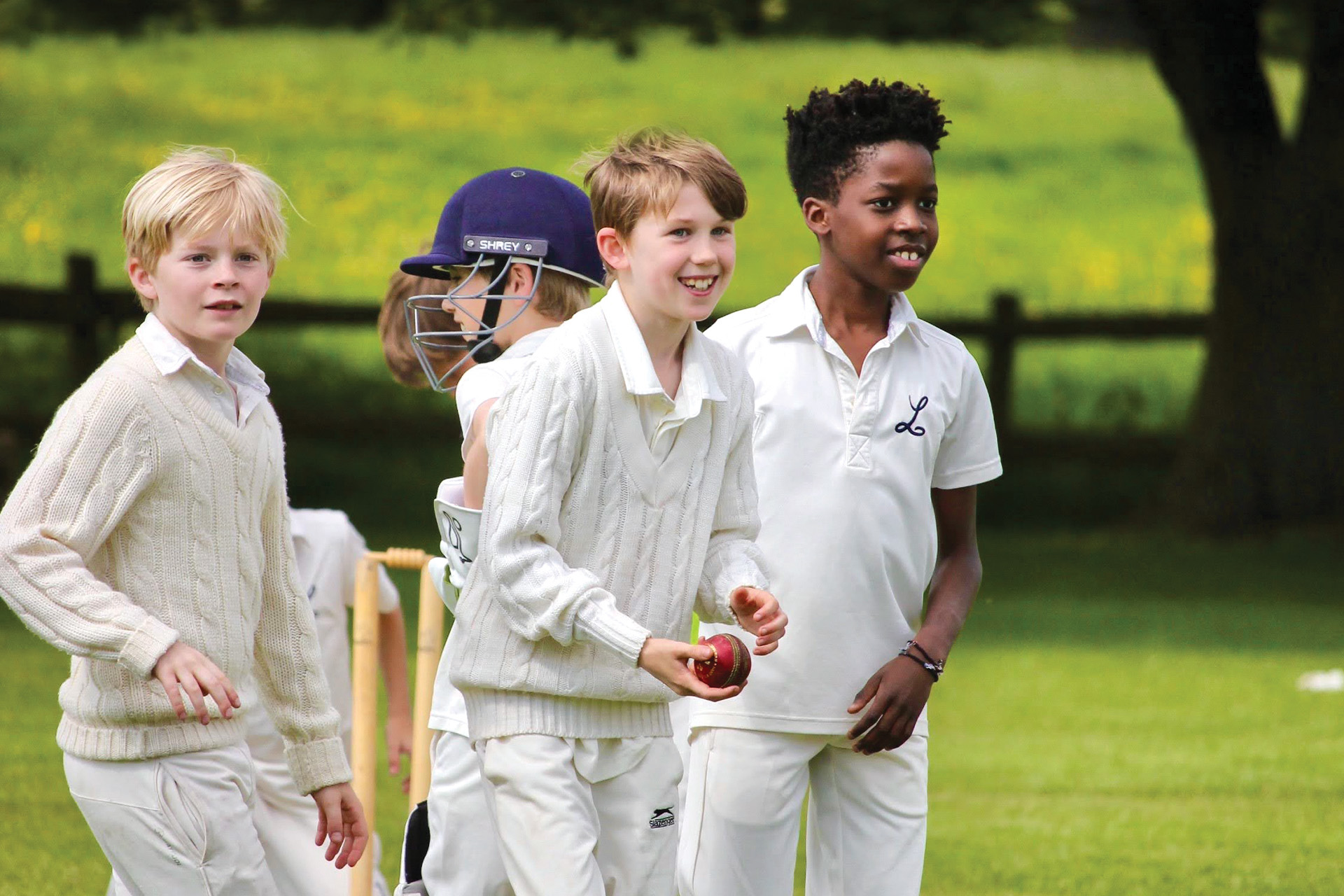
Ludgrove School, Berkshire playing cricket
Saturday school might sound like it does what it says on the tin, but programmes vary from school to school. At Ludgrove School in Berkshire, an all-boys boarding Prep School, exeats are every other weekend; during ‘in’ weekends, the boys have lessons and activities until 2.25pm when it’s time for fixtures, and then tea. At the other end of the spectrum, Sherborne Prep in Dorset, having long ago dropped the old Saturday school format, runs an optional activity programme which ‘more than 90 percent’ of pupils regularly participate in. Making things optional can be tricky if you want to keep up traditional afternoon sports matches, says Ed Benbow, headmaster of Hazlegrove Preparatory School in Somerset. ‘Parents can choose whether to send their child in or not, and that’s fine, but if you want to maintain your fixtures you can struggle with commitment.’ Suzannah Cryer, head of Highfield and Brookham Schools in Hampshire, agrees. ‘With choice we’d have an issue – while we’re doing Saturdays we’ve got to make sure that we’re all in, or all out.’
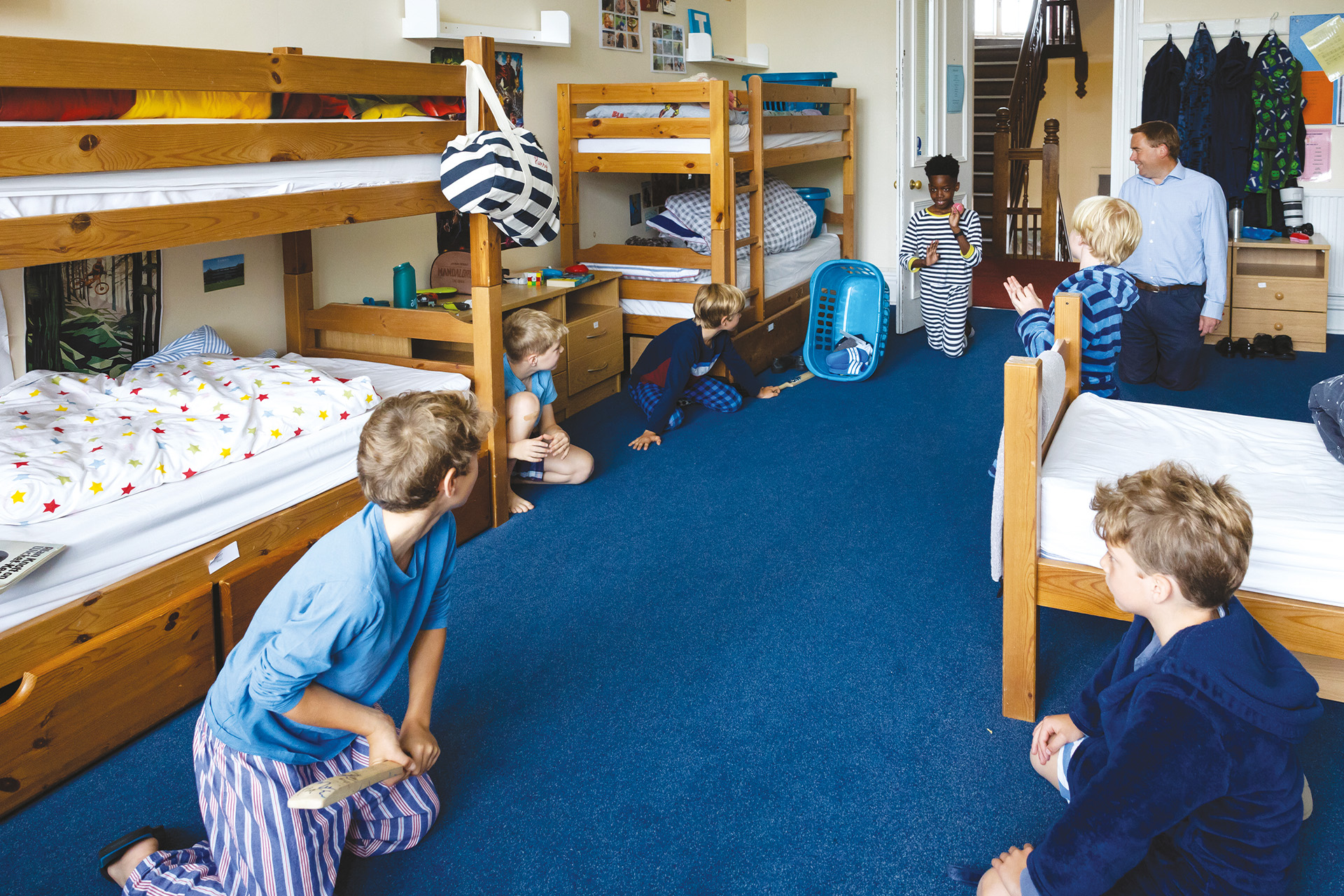
Ludgrove Dorm Room
At Highfield and Brookham, Saturday school operates 20 weeks a year. When the children are in, the afternoon is reserved for fixtures while there’s teaching in the morning. This is not just a sixth day of the week, it is a modified timetable of project-based curricular enrichment. ‘Our Saturday programme is an extension of the Monday to Friday conventional prep timetable, so it’s not totally disconnected, but it’s an opportunity to do practical science, for example – a time when you can do proper experiments without being rushed,’ explains Cryer. In Year 8, pupils do the ISEB Project Qualification as worthy preparation for the step up to senior school, and in younger years get outside in Forest School, which is at the core of the school’s sustainability focus.
It is not without trepidation that some parents approach Saturday school, says Cryer. ‘The thought of it is an alien concept to them when their children join us in reception. It’s not always the easiest sell as Covid has changed family dynamics. There isn’t an automatic understanding of it – parents need to understand the value of it, and how it is an extension to our weekday curriculum.’ Saturdays are something that Cryer feels strongly about checking in with parents about. ‘They are our main stakeholders – we’re under the microscope on that front.’ After all, the landscape of prep boarding has changed. ‘Long gone are the days when you would be dropped off in September and picked up in July, coming home once a term. It’s a different culture now – our boarding numbers are strong, but they are mainly local weekly boarders.’

Moreton Hall School, North Shropshire
There is something rather wholesome about Saturday school done right. ‘I begged my parents to board, aged 11,’ says a 40-something friend. ‘As a day boy going home at lunchtime on a Saturday, I missed the best bit of the day. After some pretty concerted effects I was successful – weekends at school were much better than traipsing around Sainsbury’s.’ Others remember the alienness of not going home at the weekend. ‘It was irritating as a child,’ says a writer in his 30s who came to the UK from the United States aged 10, ‘but now, as an adult, I wonder how irritating it must have been for the teachers too. I can’t for the life of me think what value it added to anyone’s education.’ For every respondent of my straw poll who suggested that they’d have rather been playing with Lego, hunting, or splashing around in the mud at home instead of, as one put it, ‘wasting time travelling to and from matches’, there’s a cheerleader for the six-day week. An architect who attended Cothill House in Oxfordshire is enthusiastic about Saturday school 30 years on. Asked whether he would have preferred to spend time climbing trees rather than sitting through maths, he says, ‘but you could do both, and there was sport laid on – plus a chance to get into the DT room and play with all your friends. I loved it.’
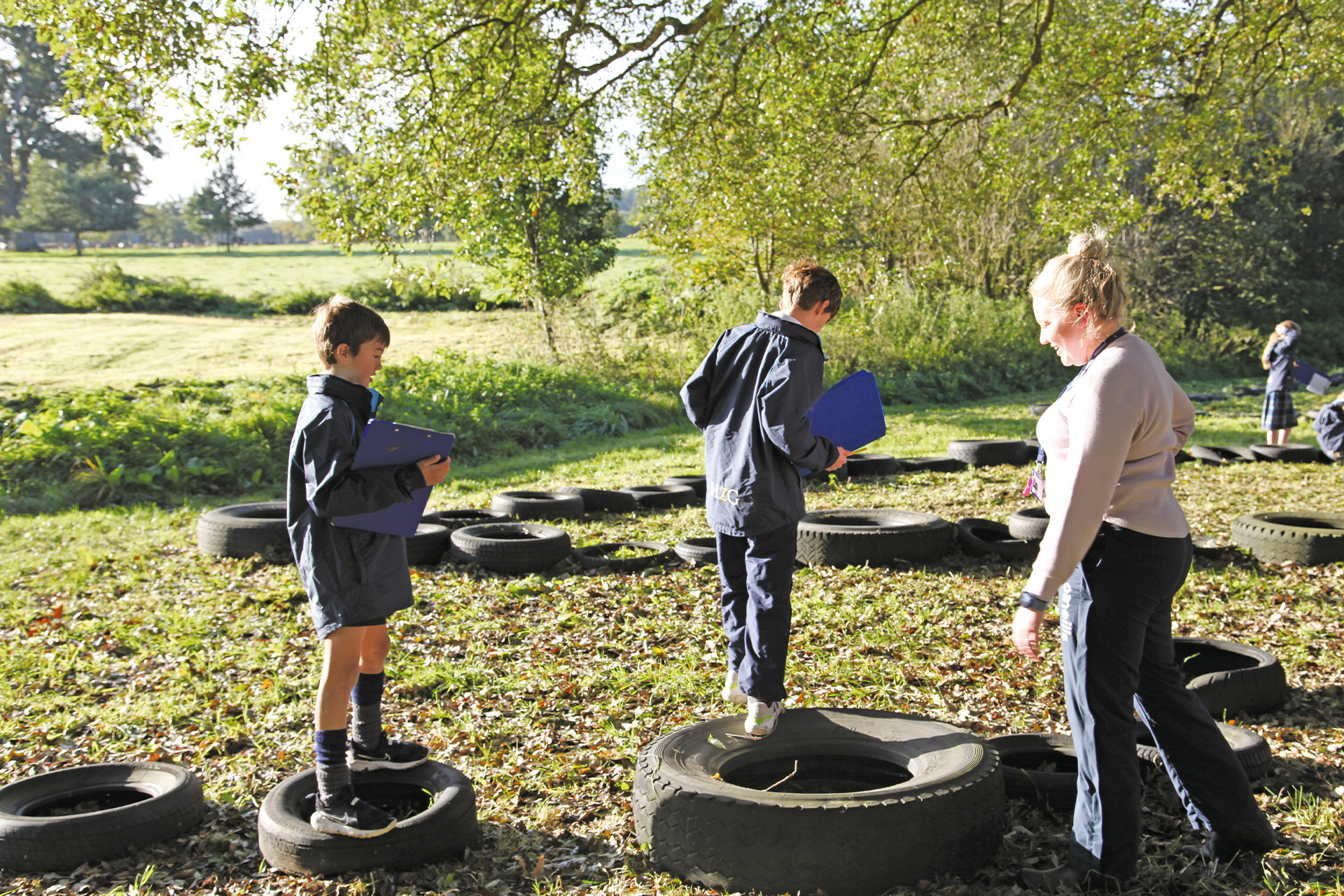
Hazlegrove School, Somerset
Criticism of Saturday school often centres on how it extends the working week. Michael Brewer, principal of Moreton Hall in Shropshire contends that a longer school week ‘feels slightly more relaxing. You don’t want to sacrifice all of the opportunities that you want to provide for pupils, so your options are to squeeze it all into five days, or spread that into a six-day week which creates breathing space, as we do here.’ Father Simon Everson, headmaster of Farleigh School in Hampshire, agrees that a six-day week feels more relaxed. ‘Because you know that you’ve got the opportunity on Saturdays to do some teaching and other activities you can offer a diverse programme during the week – a bit more imaginative and varied. Monday to Friday can be a slightly unremitting diet when you’ve got to get the curriculum fitted in.’ At Moreton Hall, there’s no sense by the end of Saturday school ‘that the weekend has disappeared, that there isn’t time for rest and relaxation, but that you’ve enjoyed both,’ says Brewer. There is a sense, he adds, that this replicates how we increasingly live our lives. ‘The 9-5 office jobs still exist, but they’re not always what people aspire to – the working from home revolution has highlighted that.’

Water activities at Moreton Hall
At Moreton Hall, which educates girls up to 18 and boys to 13, Saturday morning lessons start in Year 7, while younger children can take part in sports and extra-curriculars. In dialogue with pupils, the school hosts a range of activities, not just the ‘stock sports clubs’, says Brewer, since it’s key to listen to what the pupils want; for the older girls, shopping in Chester is a hit, as is home economics. ‘Most requests are for swimming, and informal sport, so we make sure that they can grab a couple of tennis rackets or have a throw around at lacrosse.’
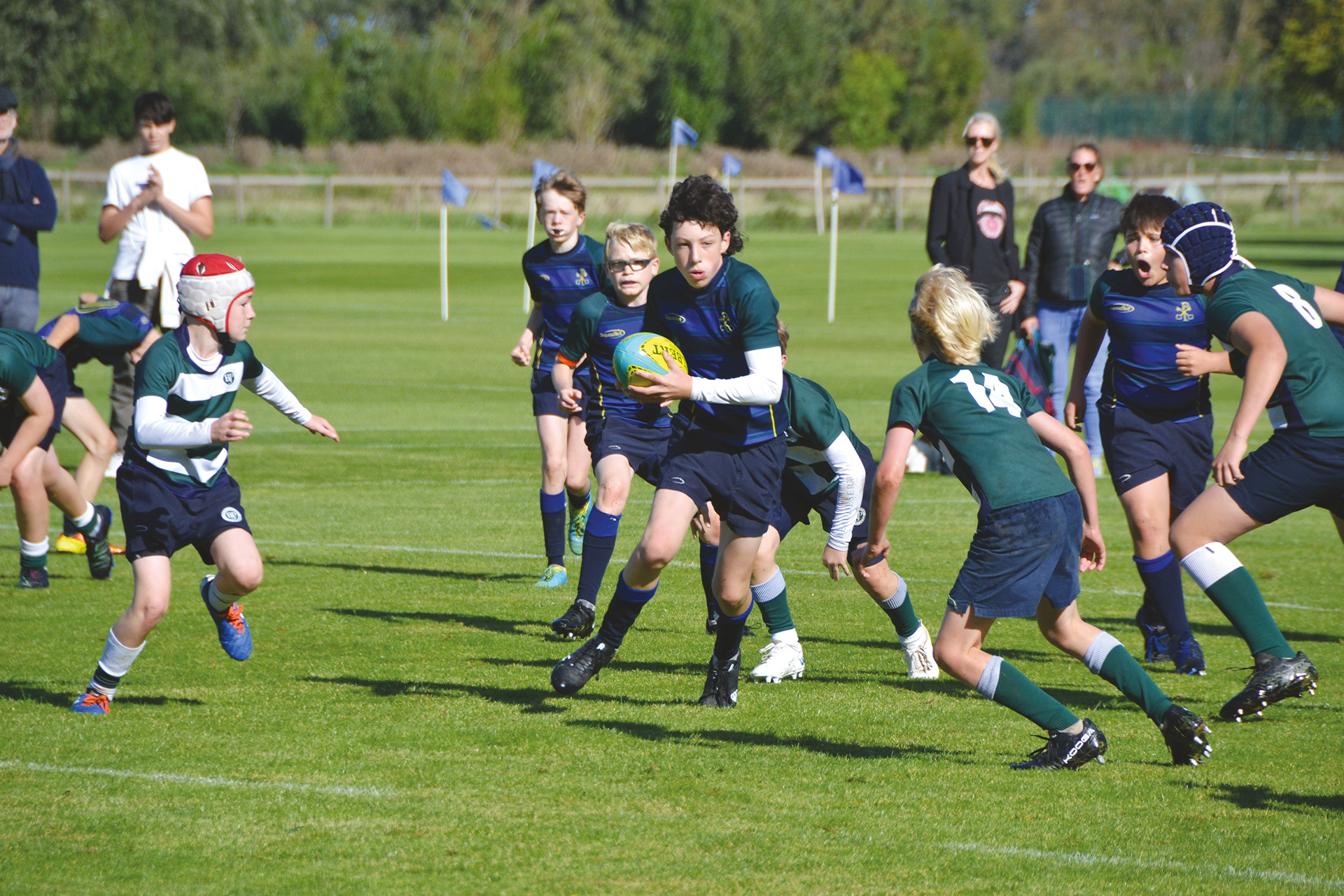
Sport at Pinewood School
In order to maintain the Saturday sport tradition, local coordination is essential. If the county prep school circuit wants afternoon matches, then afternoon matches it is, says Benbow. In previous roles – at Cothill, where the programme is morning lessons and afternoon fixtures, and at Pinewood School on the Wiltshire-Oxfordshire border, where fixtures are held on alternate Saturday mornings – he has seen it all. The Pinewood model, explains headmaster Neal Bailey, means that ‘parents can have their children well-exercised and back at home for a family lunch, enabling them to either go and watch an older child at senior school in the afternoon, or make meaningful plans for the rest of the weekend.’ This, he says, ‘strikes the right balance for many families.’ After all, he adds, boarding schools today are a more intensely involved with parents. ‘The link between home and school has become far more tangible and entwined. Tailored, flexible options to best fit parents’ needs should now be offered.’
At Hazlegrove, the offering from Year 4 is lessons on a Saturday morning, as per the weekday programme, and fixtures after. Enrichment activities – a range of different clubs both paid and unpaid, including drama, judo and riding – take place after school during the week, which, says Benbow, ‘frees up Saturday morning for lessons and then matches.’

Farleigh School, Hampshire
For Father Simon, Saturday school has a second, important raison d’être. When parents come to watch their children play on Saturdays, ‘it gives us the opportunity to see them in a way that we don’t always get to,’ he says. ‘Often with parents working during the week, they can’t always make things, but when you have a Saturday match against a local school, they’re all on the touchline. Their children tell them that they’d rather be doing that than going shopping or whatever else they’ve got planned for the weekend. Afterwards, we have a big match tea, and we can catch up with people.’ In this sense, it’s as much about the parents as the children. ‘It strengthens our awareness of being a community school. We have drinks parties for the parents – we have a really strong rapport with them. We would be diminished if we didn’t get them in on Saturdays.’
Farleigh parents with children moving from the pre-prep into the prep school sometimes question the structure, says Father Simon. ‘They’ll say, ‘ooh, my child is going to be doing a longer day and Saturdays’. We acknowledge that the step up is more demanding, but it doesn’t take long for the children to get into the swing of things.’ Soon enough, he says, everyone learns to enjoy it. ‘The children want to be here. I’m not saying the children don’t enjoy their exeats, but they look forward to the buzz of competitive Saturdays – they know other schools are rolling in on their buses. Very few homes have a profoundly imaginative programme every Saturday, so [coming to school] is probably a better choice, being with your friends in your team, playing the opposition, and coming off the pitch for tea.’

